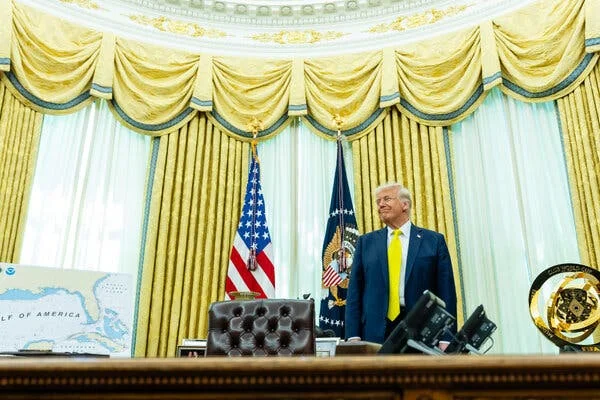
Is the American Diplomacy on the Brink? Inside Trump’s Proposed State Department Slashes
The recent proposal from the Trump administration to drastically cut the budget of the U.S. State Department has raised significant concerns about the future of American diplomacy and international relations. As discussions of reshaping the agency unfold, the implications of these cuts could resonate across the globe, influencing not just strategic partnerships but also critical humanitarian missions.
According to an internal memo circulating within the administration, the budget for the State Department and remaining operations of the U.S. Agency for International Development (USAID) could see reductions of up to 48%. This translates to a staggering cut of approximately $27 billion, condensing the total budget to around $28.4 billion for the upcoming fiscal year. Such severe financial constriction is poised to significantly impact how the United States engages with the world.
Among the most alarming aspects of this proposal are the suggested eliminations of essential funding streams. Humanitarian aid, crucial global health initiatives, and support for international organizations are among the primary targets for reduction or cancellation. With human rights organizations and international collaborations potentially facing extinction, critics have quickly branded the memo "reckless and dangerous." The American Foreign Service Association has urged Congress to reject any budget that includes these deep cuts.

Specific to personnel and operational capacity, the memo outlines plans for layoffs, pay freezes, and cuts to benefits for Foreign Service employees, already demoralized by the prospect of systemic changes. With the announcement of potential closures of diplomatic missions, including the historically significant U.S. consulate in Edinburgh, voices like former MP Hannah Bardell stress that such closures would irreparably damage the crucial ties between countries.
Moreover, these proposed budget cuts coincide with an overall strategy to pivot U.S. foreign policy away from traditional alliances. The proposed restructuring could eliminate the Bureau of Conflict and Stabilization Operations while also targeting educational programs like the Fulbright Scholarship, which has long been a foundation for educational exchange and international relations.
As the memo suggests these radical changes, it is vital to consider the long-term effects on U.S. global standing. If such cuts proceed, adversaries like China and Russia may find new opportunities to expand their influence, leaving the U.S. to struggle to regain its footing if and when these policies shift in the future.
In conclusion, while budget adjustments are often a part of governing, the scale and nature of these proposed cuts raise essential questions about the direction of U.S. foreign policy. Will America retreat into isolationism, or will it find ways to engage meaningfully with the world? The ongoing debate in Congress will ultimately determine the shape of America’s international presence in the coming years. What are your thoughts on these proposed changes? How do you believe American diplomacy should evolve in 2025 and beyond? We invite you to share your insights in the comments below.